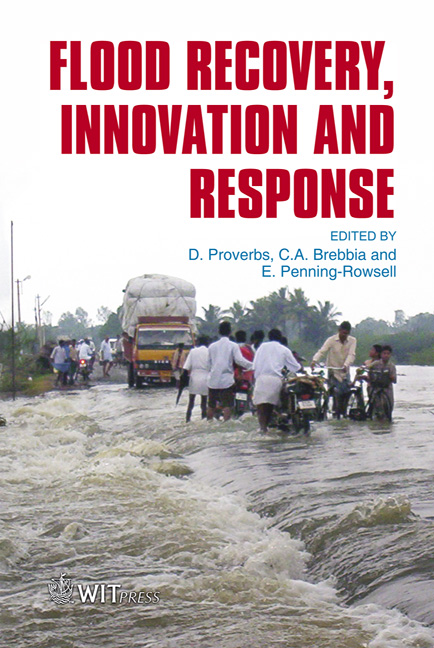Can The Basin Morphology Alone Provide An Insight Into Floodplain Delineation?
Price
Free (open access)
Transaction
Volume
118
Pages
10
Page Range
47 - 56
Published
2008
Size
815 kb
Paper DOI
10.2495/FRIAR080051
Copyright
WIT Press
Author(s)
S. Manfreda, A. Sole & M. Fiorentino
Abstract
The present research was aimed to evaluate flooding exposure by exploiting the potential of morphological indices (eg drainage area, local slope, curvature, etc). It was found that the areas exposed to flood inundation may be delineated quite well by adopting a modified topographic index computed from DEMs (Digital Elevation Models). Since the modified topographic index is sensitive to the spatial resolution of the digital elevation model, the scale dependence is investigated showing an increase in the performances of the method with the resolution of the DEMs. The procedure proposed is tested over the Arno river basin using the existing documentation on flooding exposure produced by the local River Basin Authorities. The use of the proposed modified topographic index may represent a useful and rapid tool in delineating the flood prone areas in ungauged basins and in areas where expensive and time consuming hydrological-hydraulic simulations are not possible. Keywords: flooding areas, topographic index, digital elevation model (DEM). 1 Introduction Planning and territorial management must take into account exposure to natural hazards in order to implement risk reduction programs for human life and public safety [8]. In this context, the delineation of the areas subject to flood inundations raises complex problems regarding the definition of hydrological forcing and the parametrization of models for flood wave propagation [3, 4, 10]. The increasing availability of new technologies for the measurement of surface elevation (eg GPS, SAR interferometry, radar and laser altimetry) led to an increase in the attraction of DEM-based hydrogeomorphic models.
Keywords
flooding areas, topographic index, digital elevation model (DEM).





